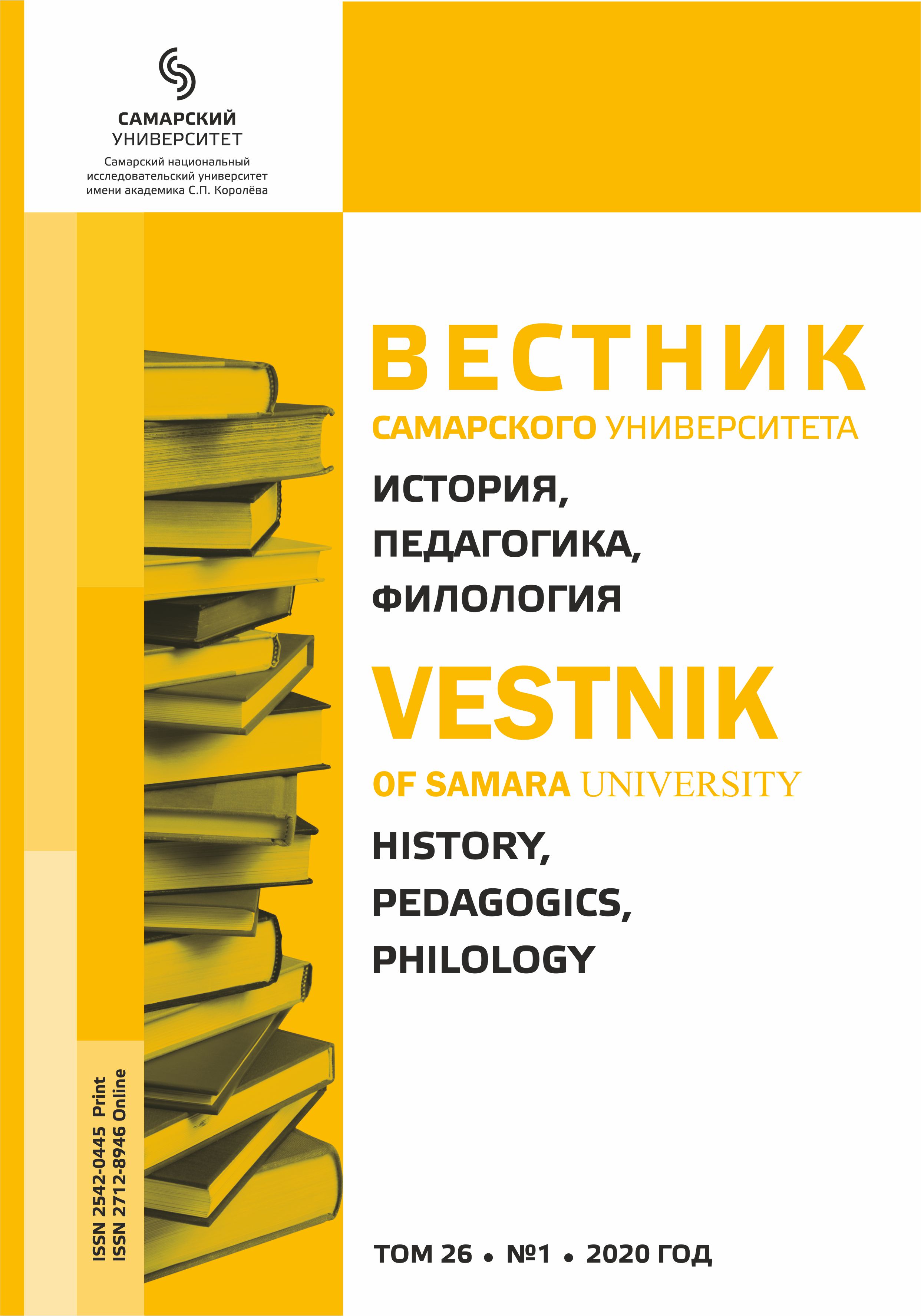Semantic transformations of maritime historicisms in modern English
- Authors: Fedotova A.E.1
-
Affiliations:
- Lomonosov Moscow State University
- Issue: Vol 26, No 1 (2020)
- Pages: 119-124
- Section: Articles
- URL: https://journals.ssau.ru/hpp/article/view/7738
- DOI: https://doi.org/10.18287/2542-0445-2020-26-1-119-124
- ID: 7738
Cite item
Full Text
Abstract
The article is dedicated to the study of English maritime historicisms in the modern English language. The author conducts research of English maritime historicisms aiming to prove that, firstly, they are actively used in modern English, secondly they changed their meanings and thirdly, their functions are not limited to the nominative one. Moreover, the author singles out numerous transformations that affect the meaning of maritime historicisms. The methods used by the author include: descriptive, comparative, systematizing methods and method of contextual analysis. The choice of maritime vocabulary as the material for analysis accounts for by two factors: 1) maritime affairs have always been closely associated with human activities of the British, hence, the English maritime vocabulary includes a large number of historicisms that were used to denote objects and events not existing now; 2) a considerable amount of written records where historicisms are used are still available, and on their basis maritime dictionaries which include historical terms have been compiled. The factual materials comprise numerous marine dictionaries, news columns, literary works, articles and encyclopedias. Conclusions reached by the author are as follows: English maritime historicisms form part of active vocabulary in the English language; four ways how they can change their meaning have been singled out and; apart from nominative function they perform expressive and evaluative functions as well. Theoretical and practical significance of the article consists not only in contributing to the knowledge about English maritime historicisms but also in tracing the association between Maritime History and its reflection in the English language. Moreover, the article can provide the basis for future research in discourse studies (e.g. studying the functional characteristics of historicisms in professional and non-professional communication) and terminological studies, translation of historicisms etc.
About the authors
A. E. Fedotova
Lomonosov Moscow State University
Author for correspondence.
Email: morenov@ssau.ru
ORCID iD: 0000-0003-2272-8337
postgraduate student, Faculty of Philology,
References
- Rasor 2004 – Rasor E.L. (2004) English/British Naval History to 1815: A Guide to the Literature. Greenwood Publishing Group, 875 p. Available at: http://readli.net/english-british-naval-history-to-1815-a-guide-to-the-literature.
- White 2002 – White C. (2002) The Nelson Encyclopaedia. London: Chatham Publishing, Lionel Leventhal Limited, 236 p.
- Brandes 2011 – Brandes M.P. (2011) Stylistic analysis: on the material of German language: 2nd edition, enlarged. Moscow: Librokom, 210 p. (In Russ.) Available at: http://www.booksite.ru/fulltext/brandes/index.htm.
- Koduhov 1979 – Koduhov V.I. (1979) Introduction to language studies. Moscow, 291 p. (In Russ.) Available at: http://dep_rya_i_mprya.pnzgu.ru/files/dep_rya_i_mprya.pnzgu.ru/koduhov__vvedenie_v_yazykoznanie.pdf.
- Kolesnik 1977 – Kolesnik G.S. (1977) On the issue of lexical historicisms in modern German language. Issues of German Philology, 1977, pp. 69–76. (In Russ.)
- Kruglikova 2016 – Kruglikova E.A. (2016) Lexicology of the English language. Krasnoyarsk: Sib. feder. un-t, 163 p. (In Russ.) Available at: http://obuchalka.org/20190729111929/leksikologiya-angliiskogo-yazika-kruglikova-e-a-2016.html.
- Teliya 1988 – Teliya V.N. (1988) Metaphorisation and its role in the creation of linguistic view of the world, in Serebennikov B.A., Kubryakova E.S., Postovalova V.I. et al. The role of the human factor in language: Language and view of the world. Moscow: Nauka (In Russ.) Available at: http://textarchive.ru/c-2963897-pall.html.
- Shanskii 2013 – Shanskii N.M. (2013) Lexicology of the modern Russian language. Moscow: Librokom, 312 p. (In Russ.)
Supplementary files













